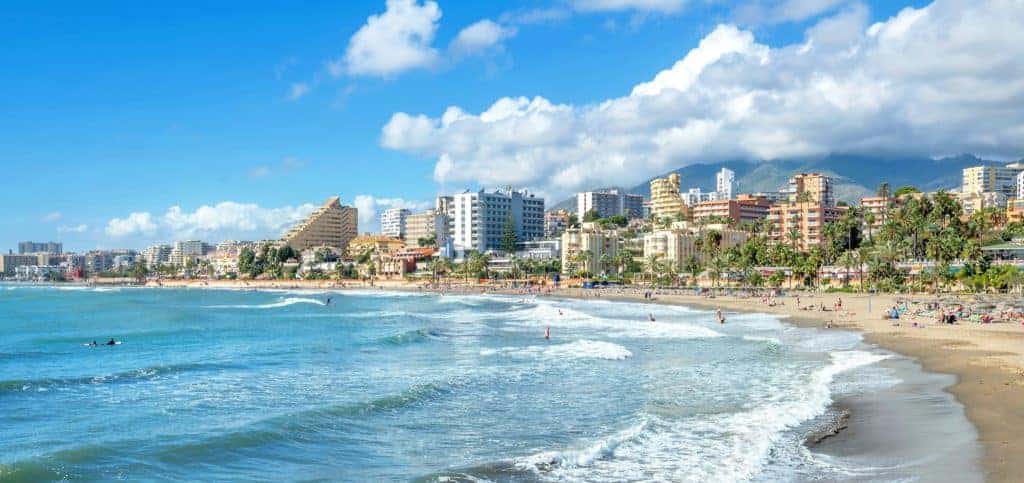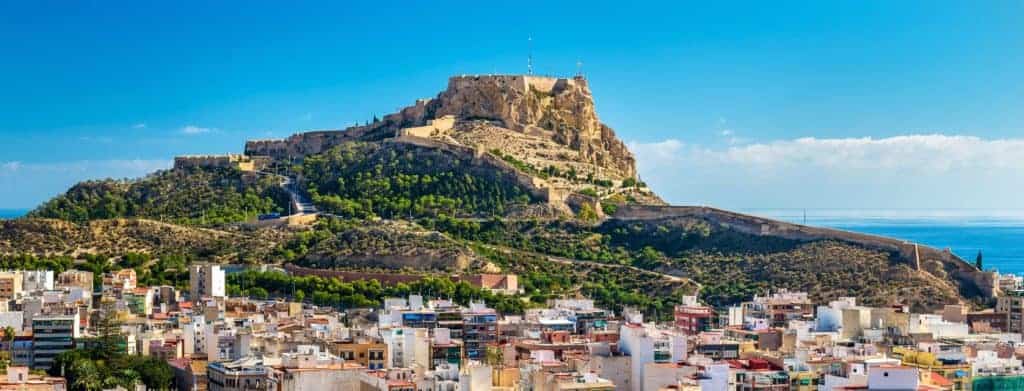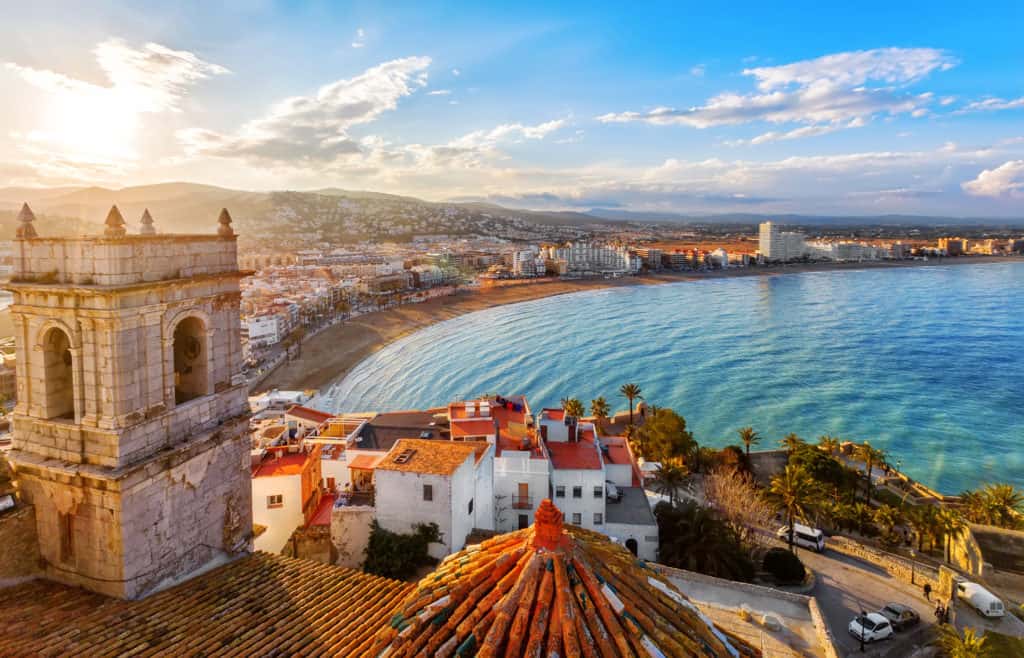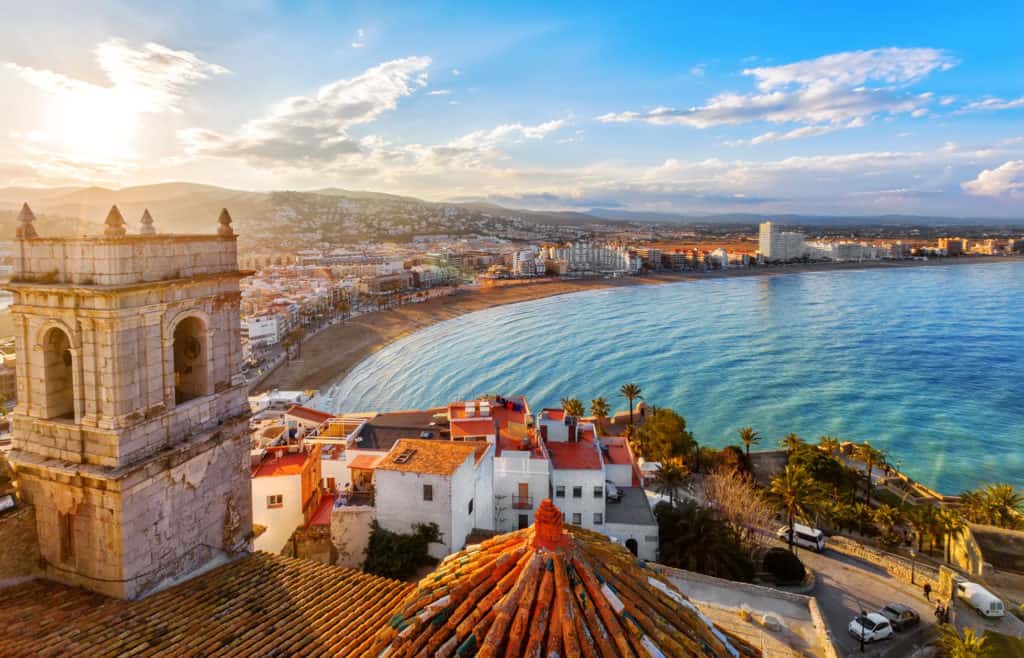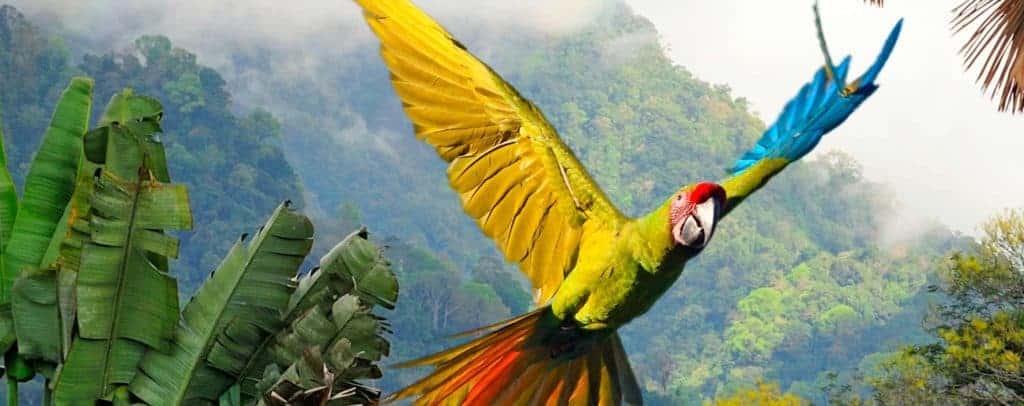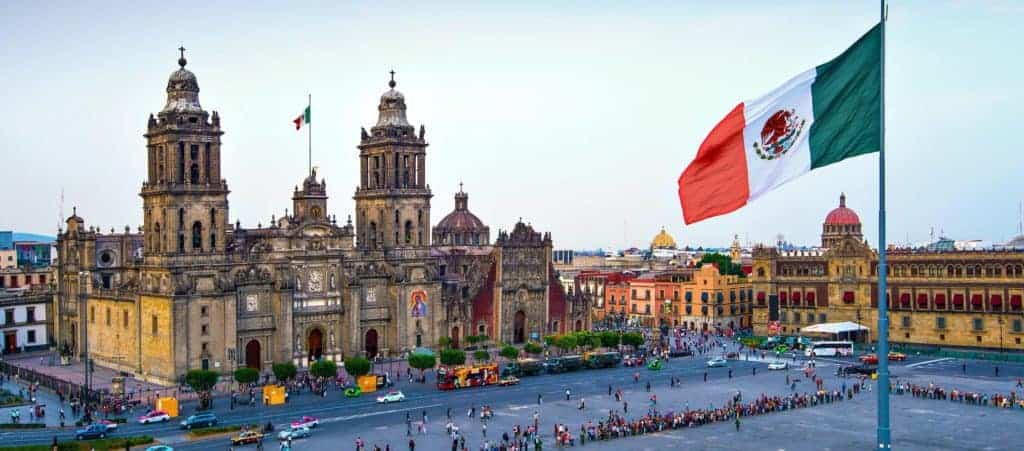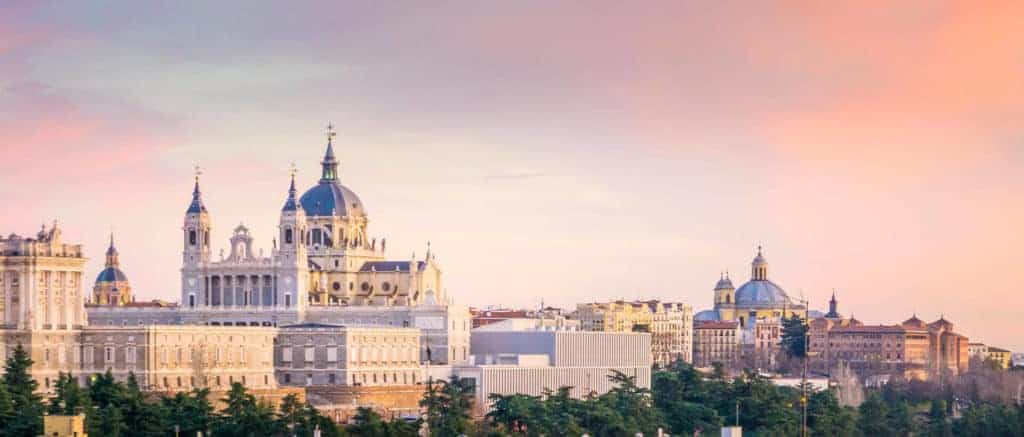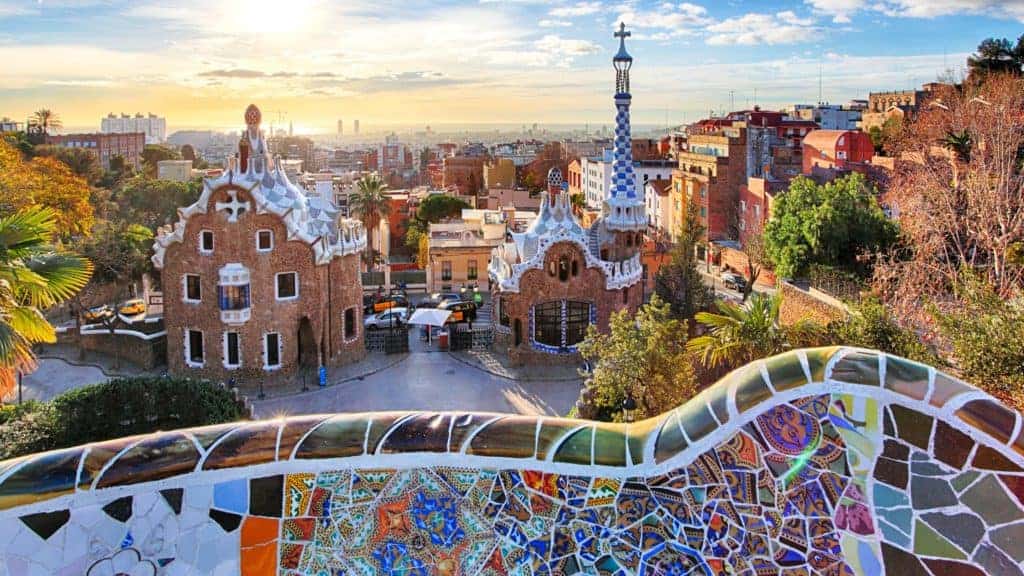School Immersion in Spain – 15-18 years – 1 trimester to 1 academic year
Our school programme in Spain offers an enriching international experience for motivated participants who are not beginners in Spanish and are aged between 15 and 18. Experience a unique language stay by studying for 1 or 2 months, a term, a semester or an academic year in a Spanish colegio (secondary school), while sharing the life of your host family.
Placements are possible throughout Spain, including the Balearic and Canary Islands, offering exceptional cultural and geographical diversity. For those who wish, it is also possible to choose their host region or town at an additional cost, allowing for a more personalised experience.
By enrolling on our school abroad programme in Spain, you’ll have the opportunity to improve your Spanish, immerse yourself in Spanish culture and discover the wonderful local landscapes and traditions.
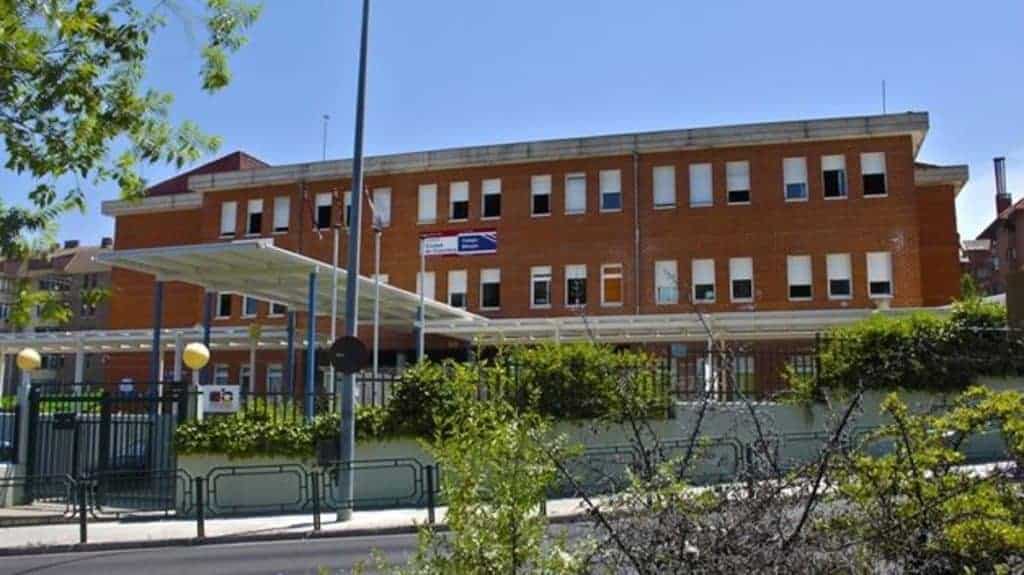

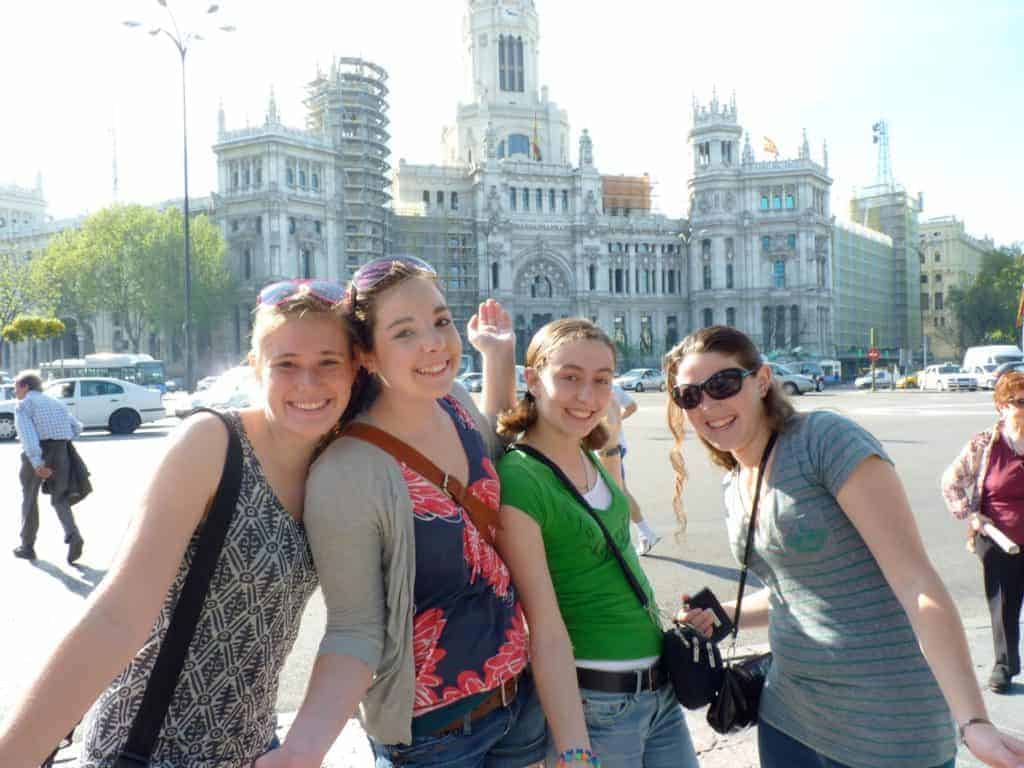
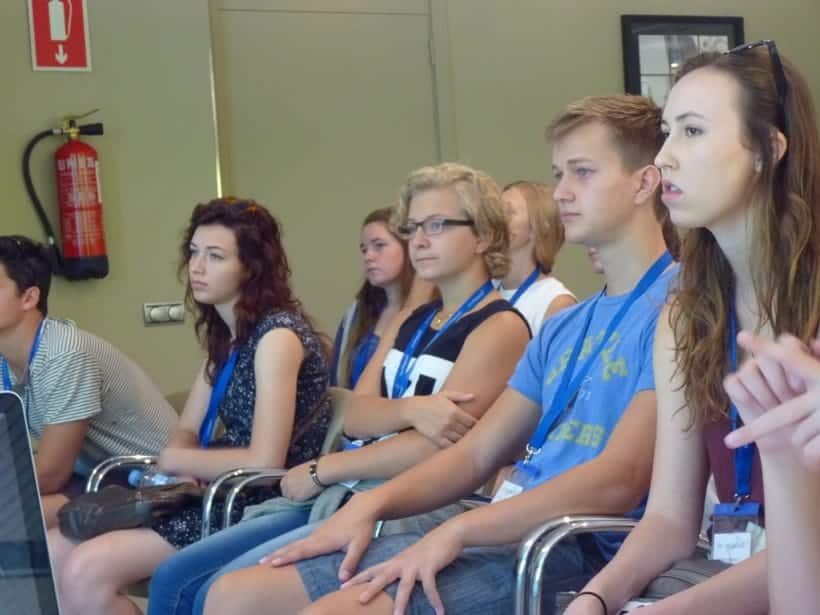



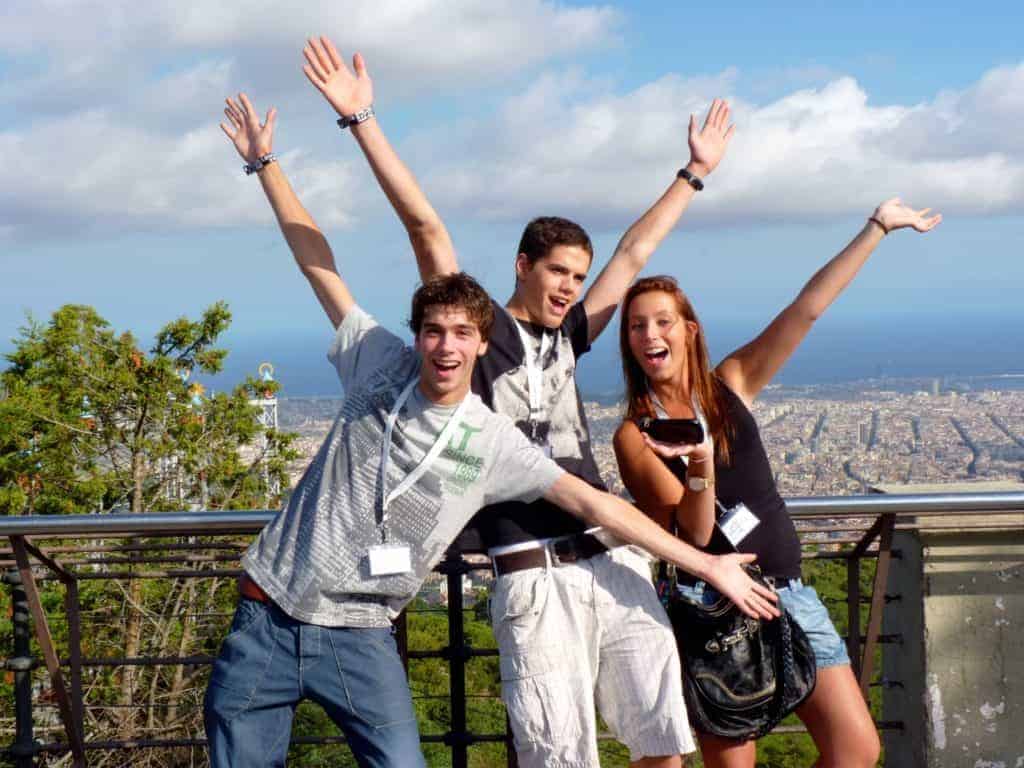

Why Spain?
It’s often said that there isn’t just one Spain, but several. The Iberian Peninsula, with its long, rich and fascinating history, offers extraordinary diversity in terms of landscapes, cultures, languages, terroirs, cities and gastronomy.
Each region has its own cultural and historical identity. To discover Spain is to fall under the spell of this diversity, but also of the kindness and joie de vivre of its people.
You can be placed anywhere in Spain, including the Balearic and Canary Islands.
For those who prefer to choose their region, or even their host town, we offer 2 options at extra cost.
Option 1: Guaranteed region
Regions :
- Southern region (includes Andalusia)
- Barcelona Region (outside the city of Barcelona but in the larger surrounding towns such as Sant Cugat, Cerdanyola, Sabadell, Terrassa, Rubí, etc.)
Option 2: Guaranteed city
City 1:
- Zaragoza, Alicante, Cadiz, Murcia, Huelva, Rivas-Vacia (Madrid)
City 2
- Seville, Barcelona, Valencia
For these options, please indicate 2 preferences on the booking form.
Notes :
- Rivas-Vacia accepts students of all ages except in January, when only students in 9th grade (14-15 years old) and 10th grade (15-16 years old) are accepted.
- Zaragoza only accepts students in 9th grade (14-15 years old) and 10th grade (15-16 years old).
- Students opting for Valencia must be aware that they will have 1 to 3 classes taught in the local language, Valencian. Each teacher has the choice of the language in which they wish to teach.
- Students opting for Barcelona must accept that all classes will be taught in Catalan. Students are allowed to do their homework and assessments in Spanish (Castilian).
- Students with specific dietary requirements (vegan, lactose intolerant, celiac, etc.) or who suffer from severe allergies cannot choose a region or city. They must accept placement anywhere in Spain (except Barcelona).
In January, our local partner organizes a trip to Madrid for all program participants. All information will be provided on-site.
This programme enables you to attend a state secondary school. The class attended and the choice of subjects are determined by the school once the students have arrived, depending on their previous schooling and their level of Spanish. Students who are repeating their final year of high school will not be placed in the last year (2° Bachillerato) as it is an exam year for local students.
In Spain, Spanish students have priority over international students. For this reason, the placement of foreign students can only be confirmed and finalised once all the Spanish students have enrolled, and we are only informed of this at a later date.
The subjects taught vary depending on the class. They generally include: mathematics, Spanish, English, a science course (physics, chemistry or biology) and physical education. You must attend all classes in the same way as a Spanish student.
You will be in the same class with the same group of students for most of the day, which will allow you to form strong bonds with the other students. In Spain, it’s the teachers who change classes. The rhythm of the day will undoubtedly be different from what you might experience in Belgium or France. It varies from school to school, but classes generally run from 8.00am/8.30pm to 2.00pm/14.30pm, with a 30-45 minute break in the morning. Pupils take advantage of this time to eat a snack that they buy on site or bring from home. Lunch is taken at home when they return from school at around 3pm.
The teaching style in Spain is similar to that used in universities. This means that teachers give a lecture. Students are expected to take notes and then complete the homework required. A Spanish student spends between 2 and 4 hours a day on personal work, mainly in the afternoon (rereading notes, handing in homework, projects, etc.). However, the teachers are very approachable and if you have difficulty understanding or need advice, don’t hesitate to talk to them.
Students receive a report card in December, March and June. The marks (on a scale from 0 to 10) reflect the results obtained throughout the term in each subject. Foreign pupils must obtain at least a mark of 5 in each subject, which is considered an honourable result given the language barrier.
Education in Spain is divided into three stages: primary school, from ages 6 to 12; secondary school, from ages 12 to 16; and the Bachillerato, from ages 16 to 18.
The Bachillerato corresponds to the last 2 years of secondary education; it completes the 4 years of “Compulsory Secondary Education” (E.S.O.). International students are generally placed in one of the following classes:
- 3 ESO: 14-15 years
- 4 ESO: 15-16 years
- 1 BACHILLERATO: 16-17 years old
- 2 BACHILLERATO: 17-18 YEARS
The assessment system is based on marks received throughout the year (continuous assessment). There is no national examination at the end of the course, but the diploma is awarded on the basis of the results obtained throughout the year.
The school year is divided into three terms:
- 1st term: September to December
- 2nd term: January to March
- 3rd term: April to June
The exact dates of each term depend on the region.
There are only two holiday periods during the school year: Christmas (around 2 weeks) and Easter (1 to 1 week and 1/2 week).
In Spain, education and enrollment are controlled by the government, so public schools do not have a say in these processes. The files of international students can only be submitted to the authorities after the enrollment of local students is finalized. Authorities typically allocate a place in the school after the student arrives in Spain. Due to the waiting period, you may not be able to start on the first day of classes. Once your place is confirmed, you will start school the following day and will be assisted by the school during the first few days.
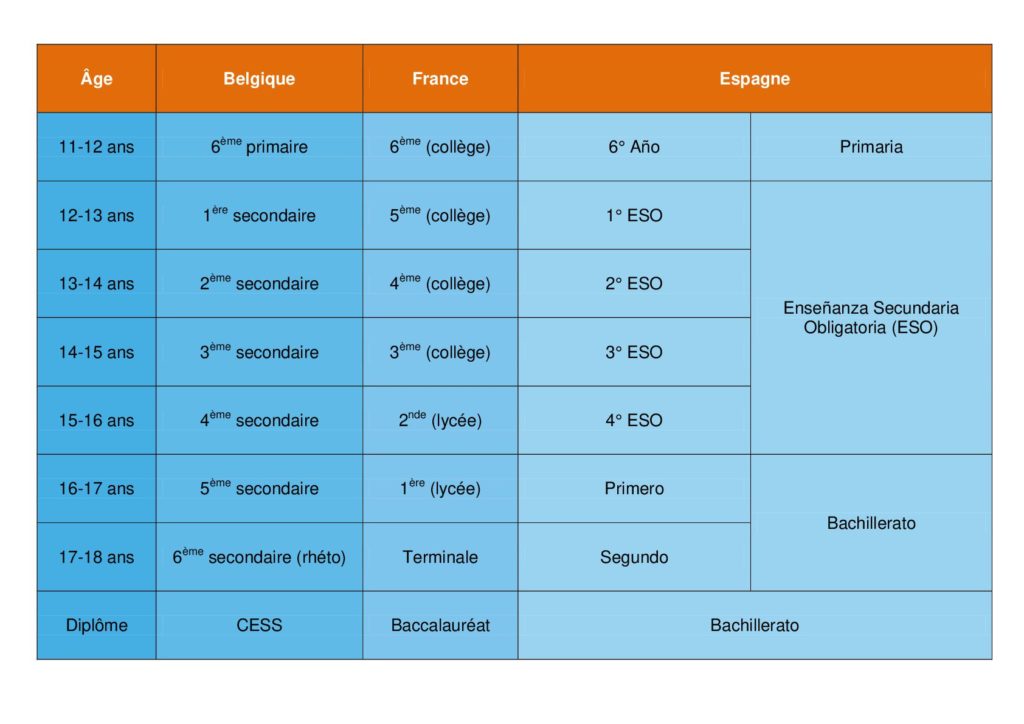
Host families are undoubtedly the most important element of the programme. This is why we attach such importance to their selection.
They choose to host students because they want students to discover and share their way of life and culture, and because they want to find out more about the young people they host and their country. After being selected on the basis of interviews and references, the family plays an active role in choosing the student they will be hosting.
Students are accommodated in a single room. The family provides all meals, with the exception of those taken at school. Specific dietary requirements (vegetarian, vegan, celiac, etc.) are not included, additional fees apply.
The pace of life in Spain is typically Mediterranean, and mealtimes are very different from those in northern Europe. Lunch is taken around 3pm and dinner around 9pm. (Schedules may vary from one family to another, so the student will need to demonstrate adaptability.)
The local correspondent is an experienced person who selects the host families and stays in regular contact with the students. As he or she is able to act quickly in the event of a problem, he or she is your key contact during your stay.
He or she will be on hand to answer any questions you may have once you arrive and to help you if you run into any difficulties.
Finally, an emergency number will be given to you so that you can contact someone in case of an urgent problem.
Optional
On arrival in Spain, students can take part in an orientation session in Barcelona (2 nights on site) which takes place in September and January, from Friday to Sunday. This orientation is offered as an option at an extra cost and is for participants in a term, semester or academic year programme.
This weekend will be an opportunity for you to meet the other international students taking part in the programme, visit Barcelona and prepare yourself for all aspects of the experience that awaits you.
On Sunday morning, you will go to your host family. Transport to your destination will be provided by our local partner.
The weekend includes:
Transfer from Barcelona Airport (BCN) to accommodation, 2 nights in a youth hostel, shared room, full board, one orientation session conducted in English, a city tour, supervision, and transportation from Barcelona (train or plane) to the host family.
Students who do not participate in the orientation weekend in Barcelona will attend an online session of approximately one hour about a month before their departure. This orientation will be conducted in English.
- Be between 15 and 18 years old.
- Have a level of Spanish proficiency that allows communication and exchange (at least two years of studying the language).
- Have achieved good academic results over the past three years.
- Demonstrate motivation, maturity, adaptability, and open-mindedness, which are the true keys to the success of the program.
- Have realistic expectations and understand that there will be differences.
- Have a desire to learn and live in Spain.
- Not suffer from a serious illness requiring continuous treatment or similar, and be in good health to avoid interrupting the program. If a student has medical history, Langues Vivantes must be informed before the student begins the application process. Ultimately, it is up to our local partner to accept a student based on their medical history.
Do you meet the conditions for participation?
- Fill in the pre-registration form as soon as possible.
- When we receive it, we’ll send you a provisional confirmation, including the total cost of the stay, a request for payment of €100 (for the language test and the motivation interview), and the complete enrolment pack. We will also ask you to send us a copy of your school reports for the last 2 years.
- We then invite you to come and take the language test and interview at our offices in Brussels or via google meet. The cost of this interview is payable on receipt of the pre-confirmation and is non-refundable, but can be deducted from the balance of your stay if you are definitively enrolled and accepted on the programme. Part 1 of the application form must be completed and brought with you to the interview.
- We will confirm the result no later than 8 days after our interview.
- If the interview is positive, we ask you to pay a deposit of 25% of the total cost of your stay (with a minimum of €1,500) and to complete all the elements of your application, which includes letters of recommendation from your teachers and other information needed for us to study your application on site. As soon as your application is complete and we have received payment of the deposit, we will forward it to our partner.
- Final acceptance to the programme is given by our partner.
- Once your application has been accepted, our partner begins the search for and selection of a host family and school.
.
The deadlines for submitting complete applications to our Spanish partner are :
31 March for September arrivals *
30 September for January arrivals*
15 January for arrivals in March*
For city choices :
- January 14th for September arrivals
- May 14th for January arrivals
Note: the online pre-registration form must reach us at least 15 days before the deadline for submitting applications to our partner.
*After these dates, registrations for the start of the new school year in September are still possible on a case-by-case basis, but regional or city choices are no longer available. Late registration fees apply.
The arrival station or airport is the one closest to the host family’s place of residence. You will be informed of this when you are placed.
If you have chosen the “Orientation Weekend in Barcelona” option (1 term, 1 semester or 1 academic year programmes), the arrival is in Barcelona and the return journey is from the station or airport closest to your place of residence.
Note: do not book your travel ticket until we have confirmed your stay.
Visa information
Citizens of the European Union do not need a visa to enter Spain.
Citizens of other countries (such as the United States, Brazil, Japan, Korea, etc.) can stay in Spain for a period of three months without a visa.
If the programme exceeds 90 days (3 months), a visa covering the entire duration of the stay is required. Contact the Spanish embassy in your country for full details.
All costs incurred by these procedures are the responsibility of the student.
Medical/accident/repatriation and civil liability insurance is compulsory for this type of stay. You will be asked for a certificate when you submit your application.
Langues Vivantes offers you a complete insurance package adapted to young people’s stays abroad, see Insurance and guarantees
Dates 2025-2026
- 1st term : 12/09/25 -14/12/25
- 1st semester :12/09/25 – 25/01/26
- 1 school year : 12/09/25 – 27/06/26
- 2nd term : 30/01/26 – 2/05/26
- 2nd semester : 30/01/26 – 27/06/26
Stays of 1 or 2 months are possible between September and the end of January.
Orientation weekend in Barcelona (stays of 1 term, 1 semester or 1 academic year)
- 12/09-14/09
- 30/01-1/02
Prices 2025-2026
| Tuition & full-board Homestay accommodation | |||
|---|---|---|---|
| 1 term | € 5.895 | ||
| 1 semester | € 6.950 | ||
| 1 academic year | € 9.975 | ||
| Optional extras | |||
| Guaranteed choice | 1 term | 1 semester | 1 academic year |
| Region (South, Barcelona) | € 500 | € 500 | € 500 |
| Cities 1 and Community of Madrid | € 600 | € 1.000 | € 1.500 |
| Cities 2 | € 800 | € 1.000 | € 2.000 |
| Orientation week-end in Barcelona | € 500 | ||
| Other extras - Special diet (per month) | |||
| Vegetarian diet (including fish, eggs and dairy products) | € 50 | ||
| All other special diets | € 100 | ||
| *Regions | Eastern Region (includes Valencia and Murcia) Southern region (includes Andalusia) Barcelona Region (outside the city of Barcelona but in the major surrounding towns such as Sant Cugat, Cerdanyola, Sabadelle, Terrassa, Rubí, etc.) |
| **Cities 1 | Zaragoza, Alicante, Cadiz, Murcia, Huelva |
| **City 2 | Seville, Rivas-Vacia (Madrid), Barcelona, Valencia |
Rates include :
- Pre-application interview
- Full-time schooling in a public school
- Accommodation with a host family, full board
- Assistance, support, and follow-up from the local correspondent throughout the stay
- Regular contacts and evaluation reports
- Official participation certificate
School reports at the end of each term - Round-trip transfer from the nearest airport/train station to the place of residence
- All necessary documents for obtaining a visa for non-EU citizens
- 24/7 assistance
Not included :
- Round-trip travel to the destination
Local transportation - Pocket money: approximately €150/€200 per month
- Books and school supplies (estimated between €150 and €350 depending on the school)
- Mandatory medical insurance and individual civil liability insurance
- Possible visa fees (only for non-EU citizens)
- Late registration fees, if applicable (€500)

